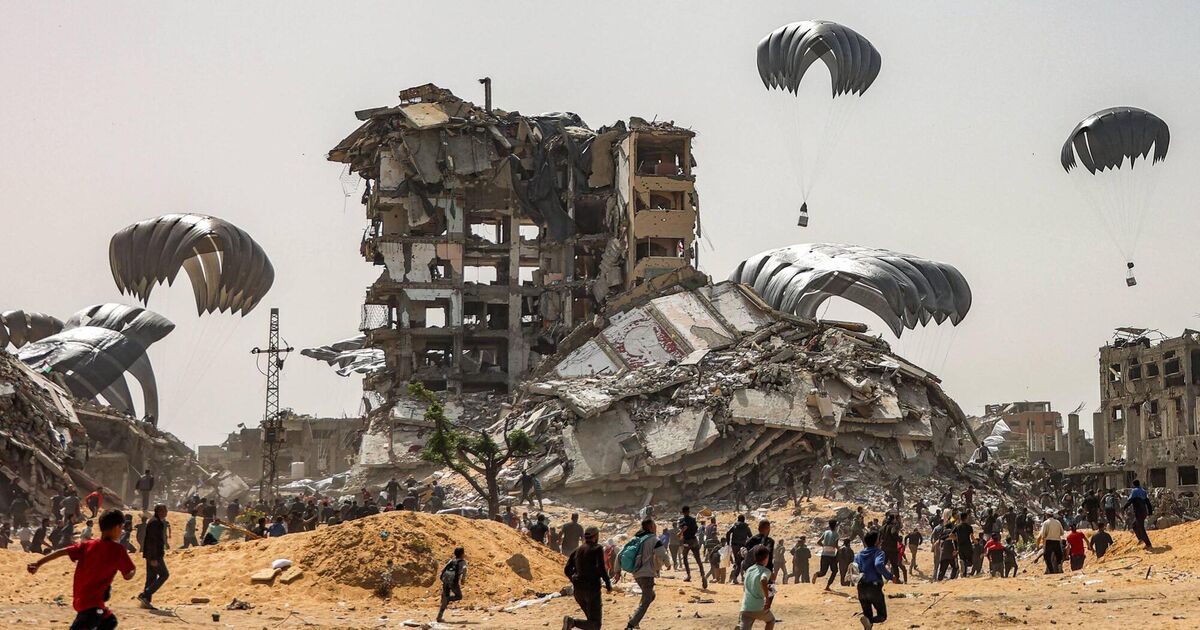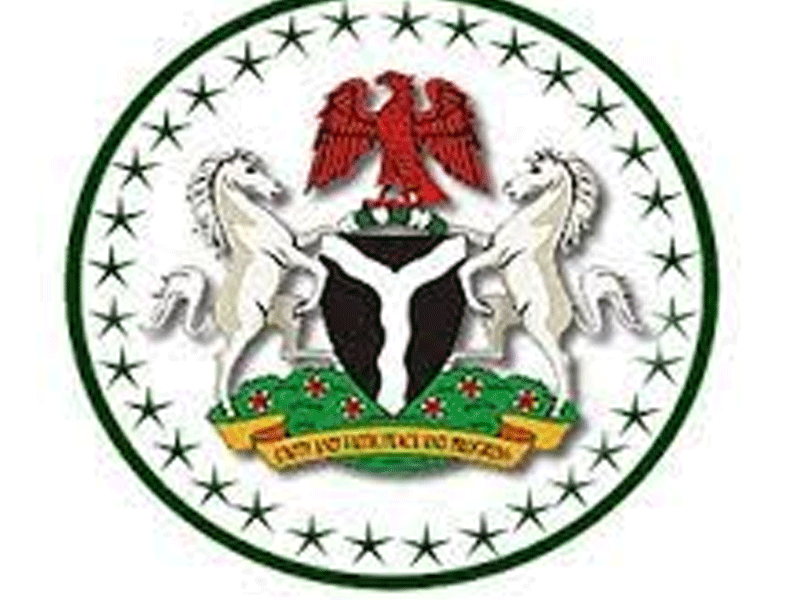Doctors wrote the words “the baby of the martyr Sabreen al-Sakani”, on a piece of tape and attached it to the infant before placing her in an incubator.
The little girl, also called Sabreen, was in severe respiratory distress and weighed just 1.4kg when medics delivered her through a C-section.
They could not save her mother, who was 30 weeks pregnant, when an Israeli attack in Rafah ripped through the family home, killing her husband and their other daughter.
With no prospect of a ceasefire in the immediate term, and Israel determined to launch a ground offensive in the southernmost city of Rafah, 17,000 orphaned children face a precarious future.
“Here is the biggest tragedy,” said Dr Mohammed Salama, head of the emergency neo-natal unit at Emirati Hospital where she was born.
WCNSF — ‘Wounded child, no surviving family’ — is a bleak new abbreviation coined by hospital staff to identify patients over the past seven months.
Yesterday, after five days it was confirmed baby Sabreen, born to a dead mother, had lost her own battle for survival.
As society collapses across the Palestinian enclave, women and girls are facing bombardment, starvation, violence, coercion, sexual assault, and death.
Women and children always disproportionately bear the brunt of conflict, but it has reached new levels in Gaza where aid agencies warn that law and order has completely broken down.
The disintegration of social structure, combined with the fact that most international observers have been prohibited from entering, is leaving women exposed.
Last month, experts from the UN’s Human Rights Council said they had received “credible allegations” that Palestinian women and girls have been subjected to sexual assault, rape, and naked strip searches while detained by Israeli authorities in both Gaza and the West Bank.
But it is not just IDF soldiers that Palestinian women have to fear, the sheer number of displaced families and orphaned children adds another layer of vulnerability.
With no protection, aid agencies fear the level of domestic, sexual, and gender-based violence has greatly increased since October 7.

A Palestinian baby girl, Sabreen al-Sakani, who was delivered prematurely after her mother was killed in an Israeli strike along with her husband and daughter, lies in an incubator in the Emirati hospital in Rafah, on Sunday. However, yesterday, after five days it was confirmed baby Sabreen had lost her own battle for survival. Picture: Mohammad Jahjouh/AP
Just like the mass grave uncovered at Nasser Hospital in recent days, it is impossible to know the true horrors currently being inflicted on women and girls who are now incarcerated in this war zone.
“Apart altogether from the prospect of death from a bomb or shootings, there are wider issues that arise in conflict situations where women’s health, safety, security and bodily integrity are at risk,” Tánaiste Micheál Martin said after meeting with UNRWA staff and other aid workers who are among a trickle of people getting into the strip.
“They were alerting us to what is a deep concern of theirs,” Mr Martin added.
Before her death, Sabreen was among 50,000 pregnant women in Gaza, of which about 180 give birth each day in unimaginable conditions.
“Thousands of women in Gaza are risking their lives to give birth, undergoing caesareans and emergency operations without sterilisation, anaesthesia, or painkillers,” ActionAid’s Riham Jafari said.
“These women deserve quality healthcare and the right to give birth in a safe place,” Jafari added.
How do you avoid post-birth infections when you are sharing a toilet with up to 400 others?
Where do you source nappies or Calpol when you have moved multiple times at the end of your pregnancy and home is now a tent?
How do you rock your baby to sleep when the thunderous impact of almost constant bombardment booms through the night sky and reverberates under your feet?
As a new mother, how do you stop yourself from plunging into despair at a time that should be the happiest of your life?
Girls between the ages of 10 and 14 make up 12.4% of the population of Gaza.
As every woman knows, it can be an awkward and bewildering age, Palestinian girls on the cusp of womanhood are being forced to use scraps of torn-off tent tarpaulin when they get their first period, risking infection.
On March 17, UNRWA trucks loaded with female dignity kits, containing sanitary pads, underwear, paracetamol, and deodorant were refused permission to enter the enclave by Israeli authorities due to the presence of glycerine in a small tube of cocoa butter hand and body cream.
Although glycerine is on the very long and constantly changing list of ‘dual-use’ items, the quantity contained in the hand lotion was negligible at just 2%.
But the rejection meant that an additional 21 trucks waiting in Al Arish, close to the Rafah border crossing, were immediately stalled.

Micheál Martin speaks to Lotfy Gheith of the Red Crescent at a humanitarian hub close to the Gaza border. Items including incubators for babies, crutches, and some toys are being rejected with “dual use” being cited.
UNWRA staff on the ground believe it was a “random rejection” but it delayed the entry of the kits by one month.
Humanitarian agencies desperately trying to get basic aid and medical supports into Gaza, are repeatedly left grappling as the list of so-called ‘dual-use’ items alters so often.
The banned list currently includes life-saving equipment like incubators for babies, CT scanners, oxygen masks, fridges to carry medication and water filters, but also contains more baffling items such as chocolate croissants (deemed a luxury) and green sleeping bags (the colour being the issue).
If Israel condemns a certain item, such as the hand cream, the products are taken back off the trucks by aid workers.
But by the time the transport vehicle returns to cross the border the list has changed and yet another non-compliant piece is identified, restarting the entire process all over again.
This can happen multiple times before the truck is eventually cleared to enter.
“Inhumanity on a grand scale,” was how Tánaiste Micheál Martin described the ongoing refusal of essential and life-saving aid into Gaza after he visited Red Crescent warehouses close to the Rafah border where pallets of aid pile up; the Egyptian desert sand forming a dusty layer on top of UN, Oxfam, and national flag logos pasted on the sides of the donations.
The denial of dignity through a lack of access to period products for 690,000 menstruating women and girls is minor compared to the many other threats facing civilians in what has become one of the most dangerous places in the world to be female.
And yet, Gaza will always be home to these women and girls who now are fighting to simply survive.
On Wednesday, a special front page edition of the featured 10-year-old Lain Shammalan, who I spoke to as she waited with her younger sister Samma, brother Mohammad, and parents on the Egyptian side of the Rafah border.
Lain misses going to school where her favourite subject was English, she misses her aunts and uncles, and above all, the sisters playing Lego in Khan Younis with their cousins.
“You could say that we escaped from hell and it’s still going on in there,” her mother Haneen said of their experience of fleeing Gaza.
And yet, the family wishes more than anything to go back.
“I am scared but at the same time I want to go back,” Haneen said.
“If anything happens them my life would be worthless but they need to learn that home is home, and home is precious.”
It’s difficult to see anything but heartbreak, trauma and grief in store for Samma and Lain and for the thousands of other girls trapped in Gaza right now.
Israel, Hamas, and political leaders across the world have the power to bring about an immediate ceasefire, to give the women and girls of Gaza a chance to regain their lives and their future.













